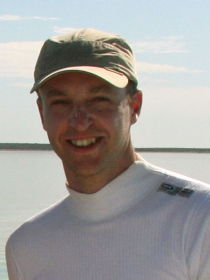prof. dr. ir. T. (Tjisse) van der Heide
Professor of Coastal Ecology

E-mail:
t.van.der.heide rug.nl
Research interests
My research focuses on the functioning of coastal ecosystems
shaped by habitat-forming species – also called
‘ecosystem engineers’ or ‘foundation
species’. I am fascinated by how these species build entire
landscapes, thereby generating vital services to society, including
biodiversity enhancement, coastal defence, and carbon storage. My
drive is to unravel ‘what makes these ecosystems tick’
and to translate fundamental findings into conservation and
restoration applications, aiming to halt and reverse ongoing
ecosystem degradation.
As part my fundamental research line, I discovered that
habitat-forming species facilitate themselves by modifying their
environment through so-called ‘emergent traits’, which
are not expressed by an individual but emerge at the aggregation
level. Consequently, such self-facilitation only works beyond
certain minimum patch size or density thresholds. Examples are
seagrasses, salt marsh plants, dune grasses and reef-building
bivalves that aggregate to shape the landscape by e.g., attenuating
wind or water flow, and by trapping and stabilizing sediments.
Apart from this ‘within-species facilitation’, I
discovered that habitat-forming species engage in vital but
vulnerable mutualisms that further improve living conditions.
Building on the above, my applied research line highlights
that inclusion of both within-species and between-species
facilitation in restoration designs greatly amplifies coastal
restoration yields. Moreover, I showed that by temporarily
mimicking emergent traits using biodegradable structures,
establishment of habitat-forming species can be
‘kickstarted’ as patch size- and density-dependent
establishment thresholds are effectively bypassed. These most
recent advancements pave the way for technical solutions to
successfully restore degraded coastal ecosystems.
